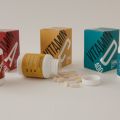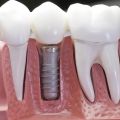Which Vitamins Strengthen Our Teeth?

But what about maintaining dental health? Oral hygiene and fresh breath are important things, but dental health is much more important in any case. That’s why in addition to improving oral hygiene and toothbrushing you should “feed” your teeth.
Actually, healthy nutrition is the key to incredible appearance and good functioning of all systems of the body. A lot of people mistakenly believe that they can prevent tooth decay and gum diseases only by brushing their teeth, but it’s not all your teeth need. Teeth do not heal as fast as organs and soft tissue and therefore it’s harder to recover enamel.
You need to know the list of vitamins, which will help you strengthen and keep your dental health in top shape.
Vitamin A
Vitamin A is important not only for the health of your eyes but for dental health as well. It’s able to keep saliva flow in the mouth. Saliva, in turn, is needed to keep our teeth healthy because it contains minerals, that strengthen the enamel, prevents toothaches, washes bad bacteria away, and keeps the mouth in a neutral or alkaline environment.
At the same time, poorly functioning salivary glands may provoke enamel damage. Vitamin A is found in eggs, liver, fish, carrots, pumpkins, broccoli, spinach, potatoes, melon, and dairy products.
Vitamin D
Vitamin D strengthens our bones and teeth, activates odontoblasts (cells, whose biological function is dentinogenesis). Odontoblasts produce dentin - calcified tissue of the enamel. There is a clear link between a sufficient amount of vitamin D in the organism and decreased risk of cavity appearance.
The most effective way to get vitamin D is sunlight. But you may also get it from mushrooms, dairy products, and oily fish (salmon, tuna, mackerel).
Vitamin K2
Calcium is known as an entirely good mineral for our teeth. Vitamin K2 regulates calcium deposition: it promotes the calcification of bones and prevents the calcification of kidneys and blood vessels. Vitamin K2 is contained in different types of cheese, eggs, butter, and liver.
Vitamin E
Regardless of how carefully you follow your dental hygiene, oral cavity always has a microbiome consisting of bad and good bacterias. If you don’t prevent the multiplication of bad bacteria, you may get gum diseases. Vitamin E is a well-known antioxidant which reduces any inflammations caused by bacteria. Thus, this vitamin prevents the development of gingivitis (gum inflammation).
Best sources of vitamin E: sunflower seeds, spinach, vegetable oils, nuts, avocado, fish, broccoli, asparagus, fruit, and berries.
Other articles and publications:
Articles and publications of other companies:
- +1 (646) 270-9836
- Long Island City
- grantny.com











